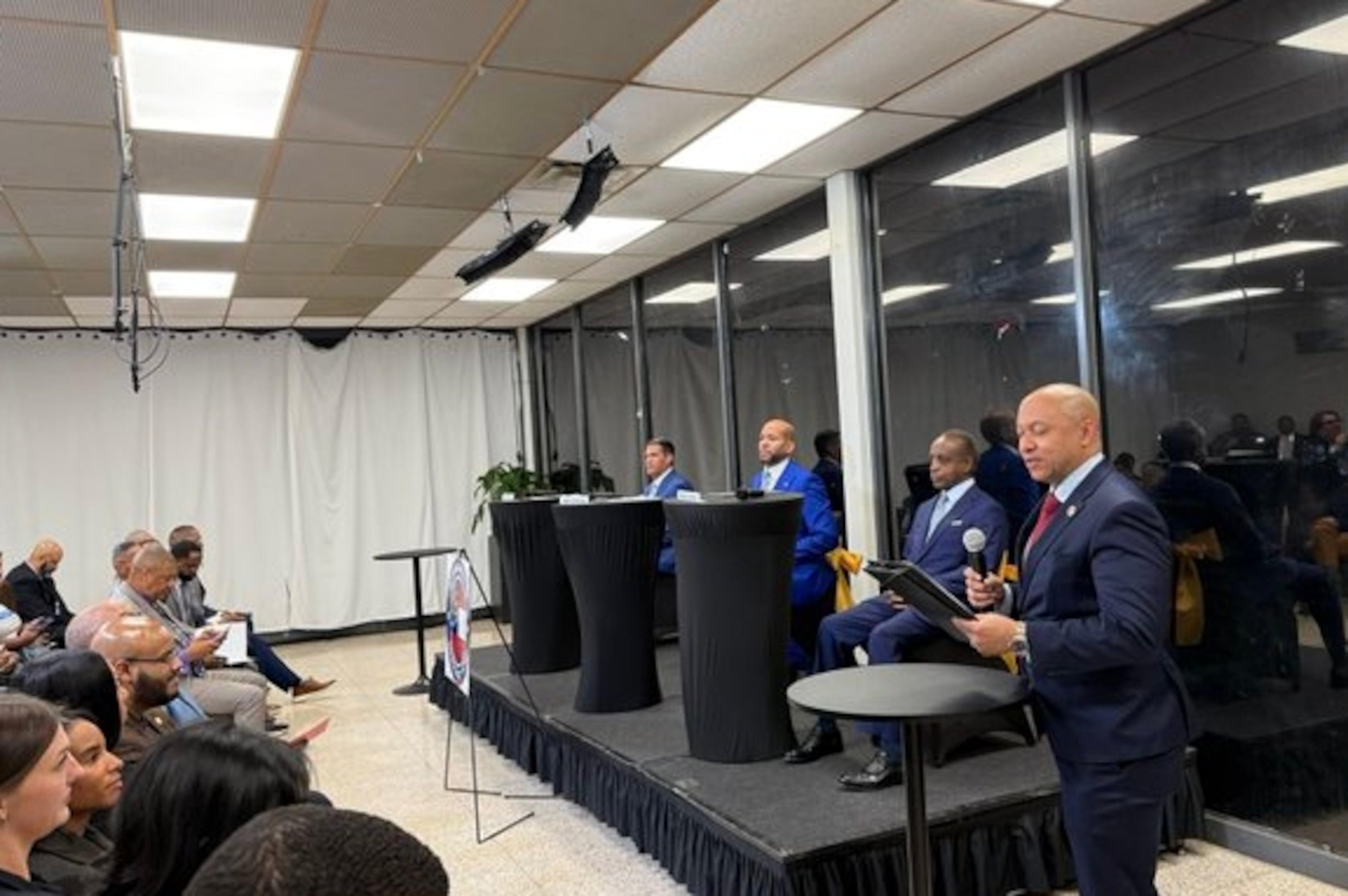Darien’s historical marker honors Tunis Campbell

This story was originally published by The Current GA.
Following the emancipation of the slaves in 1865, many African-Americans devoted their lives to the process of resistance and reclamation. However, many of these instrumental individuals have since been forsaken or forgotten in the American history narrative.
One such character is Tunis G. Campbell, the most influential African-American politician in nineteenth-century Georgia. On June 20, a crowd gathered in Darien, Georgia to right this wrong.
After an anonymous donation, the Georgia Historical Society in partnership with the Lower Altamaha Historical Society and the City of Darien established a historical marker to recognize the politician’s diligent work to safeguard African-American civil rights during a tumultuous era in American history.
Campbell’s story starts in New Jersey, but his work was along Georgia’s coast.
He was born a free man on April 1, 1812, in Middlebrook, N.J. After receiving an education from an otherwise all-white Episcopal school in Babylon, Campbell pledged his commitment to abolitionism and promised to “never leave this country until every slave was free on American soil.”
By the early 1860s, Campbell was a husband, father and prominent political figure in the Reconstruction Era – the era immediately following the Civil War and the emancipation of slaves in 1865. During this era, federal and local officials struggled to ensure the integration of 4 million newly-free people into reluctant, often hostile southern societies.
In March of 1865, Campbell was appointed to supervise land ownership and resettlement on five Georgia Islands: Ossabaw, Delaware, Colonels, St. Catherines and Sapelo. When former President Andrew Johnson pardoned Georgia planters and enabled them to reinhabit their land, Campbell purchased 1,250 acres in McIntosh County and established an association of Black landowners.
Now, in the very same county, a glittering bronze marker stands in Campbell’s honor.
Dr. Stan Deaton, the Dr. Elaine B. Andrews Distinguished Historian at the Georgia Historical Society, believes this dedication is long overdue. According to Deaton, there is a lack of scholarship on Tunis Campbell in large part due to the fragility of the Reconstruction Era and the ease with which Black revolutionaries were overpowered by white conservative Democrats.
“He was everything the white south had always feared in a Black man – he was smart, he was educated, he was fearless and he could inspire others to follow him along the path to economic and political equality,” said Deaton.
After Democrats regained power in 1871, Campbell was stripped of his authority and arrested for malfeasance in office. He was sent to a convict labor camp for one year and ultimately died in Boston in 1891.
“(Tunis was) defeated at that time and forgotten by history,” said Deaton.
But the people of McIntosh County have not forgotten. On June 20, a crowd gathered on Inverness Square in Darien for the dedication and unveiling of Campbell’s historical marker. The marker was made possible by an anonymous donation to the Georgia Historical Society.

The ceremony began with an African tradition customary for special occasions such as funerals and weddings. Mother Alberta Mabry, a 91-year-old McIntosh native, poured libations to honor the work of Campbell and other African ancestors.
“My parents taught that you always respect your elders because they were here before you,” she said. “The road you are traveling on, they’ve been down three or four times.”
Mother Mabry’s sentiments were echoed throughout the ceremony as speakers discussed history, ancestry and memory. Darien city councilman Dr. William Collins shared an anecdote about his family tree, sharing that his great grandfather occupied a jail cell with Campbell.
Before the unveiling, Deaton gave a brief historical synopsis of the Reconstruction Era and Campbell’s role in rebuilding coastal Georgia.
“The arc of the moral universe is long but bends toward justice,” Deaton said, quoting Martin Luther King Jr. “Tunis Campbell’s life and legacy are in fact an essential part of American freedom.”
At the dedication ceremony sat, or stood, many McIntosh County community leaders and proud citizens. Among the crowd was Lauretta Sams, McIntosh County Clerk. After learning about Tunis Campbell at 15 years old, Sams couldn’t comprehend why he was written out of history. Today, she blames fear as the cause of his eradication – the fear of strong, educated and powerful African-American leaders.
“I’ve lived in McIntosh my whole life and I’ve never heard this story, so what other stories we don’t know?” Sams said.
While there are still more stories to uncover, on a sunny day in June the story of Tunis Campbell was unveiled – long awaited but not long lost.

MEET OUR PARTNER
This story comes from our partner The Current GA, an inclusive nonprofit, independent news organization which provides in-depth watchdog journalism for Savannah and Coastal Georgia’s communities. Sign up for their newsletter here.
If you have any feedback or questions about our partnerships, you can contact Senior Manager of Partnerships Nicole Williams via email at nicole.williams@ajc.com.

